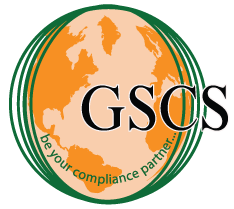.webp)
Benefits of Responsible Alpaca Standard Certification
Introduction: The Responsible Alpaca Standard (RAS) is an excellent global certification that promotes ethical and sustainable alpaca fiber production for our environment. RAS certificate guarantees the humane treatment of alpacas, encourages responsible land management, and ensures transparency throughout the supply chain. After archiving certificates, businesses enhance their animal welfare credentials and significantly boost consumer trust. This article will explore RAS's immense importance, its flourishing benefits, and how it beautifully assists in meeting the demand for responsible products.
The Responsible Alpaca Standard (RAS) is a voluntary standard that requires all sites, from alpaca farms through to the seller in the final business-to-business transaction, to be certified. RAS farmers and ranchers must meet "animal welfare, land management, and social requirements.

What is the Responsible Alpaca Standard (RAS)?
The Responsible Alpaca Standard (RAS) is a globally celebrated certification program that ensures ethical and sustainable alpaca fiber sourcing. The Textile Exchange manages it; it provides an inspiring framework for companies to source alpaca fibers under conditions prioritizing animal welfare, environmental responsibility, and social fairness. RAS offers empowering guidelines and best practices for alpaca fibers' vibrant production, processing, and trade.
Importance of Responsible Alpaca Standard
The Responsible Alpaca Standard is truly vital for nurturing a more ethical and sustainable textile industry. Here is four steps of RAS
Animal Welfare: The standard guarantees that alpacas enjoy a life filled with kindness and compassion. Delight in knowing they have lovely living spaces, perfect nutrition, and ethical shearing practices that cherish their well-being.
Environmental Sustainability: Imagine a world where alpaca farming contributes positively to our planet by adopting responsible management practices. Thanks to RAS, sustainable land management, like avoiding overgrazing and safeguarding biodiversity, minimizes the environmental impact of alpaca production. Let's celebrate a thriving and eco-friendly tomorrow.
Consumer Trust: How exciting that today's consumers are curious about the journey of their products from origin to creation. RAS certification is all about building trust by promising transparency and traceability. It fills consumers with fantastic confidence, making every purchase a positive and assured choice.
Business Growth: RAS certification is a fantastic opportunity for businesses to engage with the flourishing ethical and sustainable products market. This not only elevates their brand reputation but also wonderfully expands their customer base with enthusiasm and positivity.
Future of Alpaca Fiber with RAS
The Responsible Alpaca Standard is transformative and critical in driving the alpaca industry toward a flourishing future! Promoting ethical and sustainable approaches cultivates a thriving, responsible supply chain that benefits everyone—from passionate farmers to happy consumers. As the call for sustainable textiles rises, businesses that pursue RAS certification are enriching our planet and securing an exciting competitive advantage in the marketplace!
Benefits of the Responsible Alpaca Standard
It ensures the treatment of mane alpacas, promotes sustainable land management, and provides complete supply chain transparency. Businesses benefit by meeting consumer demand for ethical products, improving brand reputation, and accessing new eco-conscious markets.
Manufacturers and Business Owners
Market Differentiation: RAS certification differentiates your product from other products, highlighting your brand's sustainable practices. It's an incredible step that genuinely sets you apart in a shining light.
Exploring New Markets: It's beautiful how many retailers and consumers prioritize certified products. This opens fantastic opportunities in eco-conscious markets.
Supply Chain Transparency: Certification ensures a transparent supply chain, making communicating your values to customers easier.
Compliance with Global Standards: RAS enthusiastically aligns with international sustainability and animal welfare standards, equipping businesses to stay ahead of regulatory and market demands.
For Consumers
- Experience pure joy in purchasing products that honor animal welfare and environmental sustainability, positively impacting the world.
- Ensure that their choices align with their ethical and environmental values.
Certification Process for RAS
Pre-Assessment ➜ Documentation and Training ➜ Third-Party Audit ➜ Certification Approval ➜ Ongoing Compliance
How to Market RAS-Certified Products
Once certification is achieved, it is important to underscore your commitment to ethical and sustainable practices in your marketing initiatives:
- Use the RAS Logo
- Share Your Story
- Partner with Ethical Retailers
- Engage Consumers
Conclusion: The Responsible Alpaca Standard (RAS) is an amazing gateway to ethical practices, environmental care, and full transparency. For business leaders and manufacturers, achieving RAS certification is a wonderful demonstration of a deep commitment to sustainability, an enhancement of brand reputation, and a perfect response to the growing need for responsible products.
To complement this, we recommend reading our detailed write-up on:
1. Benefits of Responsible Wool Standard (RWS) Certification
2. Enhance Your Business with Responsible Down Standard (RDS)
3. Benefits of Responsible Mohair Standard (RMS) for Business Owners
FAQ:
Alpaca standards ensure ethical alpaca treatment, sustainable land use, and quality fiber production, promoting animal welfare and environmental responsibility.
A RAS certificate verifies compliance with the Responsible Alpaca Standard (RAS), ensuring ethical treatment of alpacas, sustainable land management, and transparency in the supply chain. It allows businesses to label their alpaca products as responsibly sourced.
Responsible animal fiber standards ensure ethical animal treatment and sustainable production of fibers like wool and alpaca, promoting welfare and environmental care.
The Responsible Animal Standard ensures ethical treatment of animals, sustainable farming practices, and transparency in producing animal-derived materials, supporting welfare and environmental responsibility.
Alpaca fiber is used for making soft, warm textiles like clothing, blankets, and luxury fabrics, known for its durability and hypoallergenic properties.
Alpaca fiber is known for its softness, warmth, and durability. It is lightweight, hypoallergenic, and resistant to water and stains. The fiber is also stronger and more insulating than wool, making it a high-quality material for clothing and textiles.
